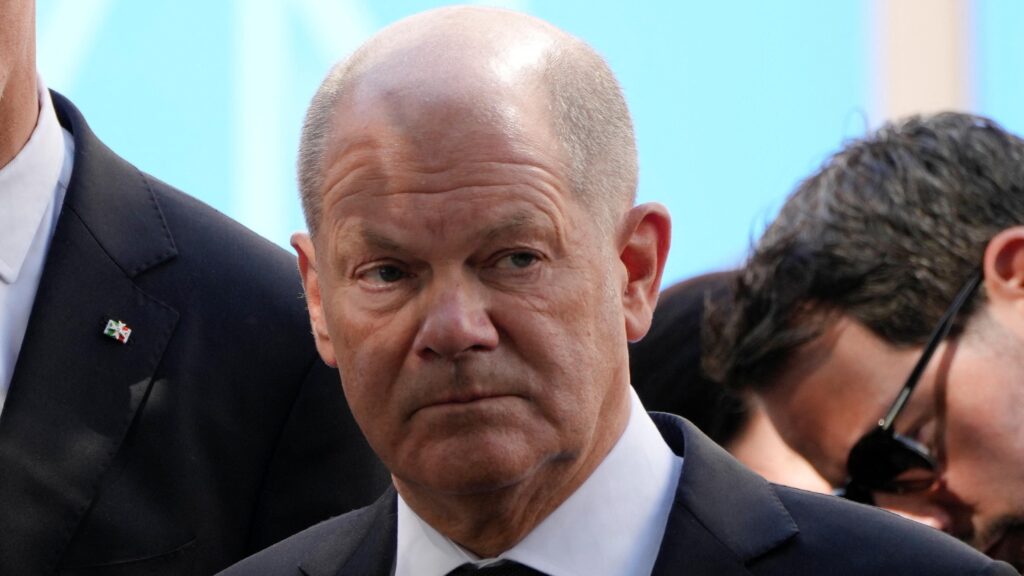By Satyaki Chakraborty
Nearly two months after the holding of the elections to the German state of Thuringia for the state parliament, formal talks started on Monday between the Christian Democratic Union (CDU), Social Democratic Party (SPD) and the left wing BSW for the formation of a coalition government to prevent the far right AfD from coming to power.
In the elections held on September 1 this year to the state parliament of Thuringia, the far right Alternative for Germany (AfD) emerged as the largest single party getting 32 seats with 32.8 per cent of the votes polled, followed by CDU with 23 seats and BSW with 15.The SPD came fifth with only 8 seats. The traditional Left Party Die Linke got 10 seats.
Thuringia has always been a stronghold of the Left, the former communists who are part of Die Linke which was founded out of the Party of Democratic Socialism (PDS) set up by a major section of the erstwhile Communist Party of East Germany after reunification of two Germany’s in 1990. The BSW was a split away group from Die Linke.
The upsurge of the far right AfD in the German politics has alarmed the centrists as also the moderate right. The conservative CDU has taken a position against the AfD, but the CDU is not agreeable to any coalition understanding with Die Linke for their communist past. However, the CDU has agreed to discussions with the BSW, led by the former Di Linke stalwarts.
In the Thuringia parliament, the total seats number 89, so 45 seats are required to get a majority. The AfD has got 32 seats, but since no other party is ready to support AfD to form a government, the other three parties with a total of 46 seats are in a position to form a government if they agree on programme.
On this programme issue, there is a hitch between BSW and CDU. In the exploratory discussions, BSW’s local head mentioned of the possibility of postponing the Party stand on commitment by the coalition on peace negotiations to end the war in Ukraine and opposition to the stationing of US troops in Germany, but the central leadership of BSW wants that these two demands are red lines and these can not be sidelined.
As a result, it is expected that the next round of negotiations will be stormy and if the Thuringia BSW leadership sticks to its position, CDU may not agree. On the other hand, there is a pressure on BSW central leadership that these issues should be kept in abeyance for some time to facilitate the process of coalition making to prevent AfD from coming to power. Political circles are closely waiting for the next course of negotiations.
Similarly, talks are on between SPD and BSW for forming a coalition government in Brandenburg state as the ruling SPD failed to get majority on its own and the AfD emerged as the second largest party. SPD got 31 per cent of the votes, followed by AFD’s 29 per cent and BSW 13 per cent. The CDU got only 11 per cent.
Brandenburg has been ruled by the SPD for long years and the German Chancellor Olaf Scholz belongs to this region. His leadership was at stake as the AfD was surging ahead in the regional elections at the cost of SPD and Brandenburg was the last regional elections on September 22 before Germany goes to the national polls in October 2025.
The AfD which has little base in Brandenburg five years back got massive support from the workers and the youth campaigning on the issue of immigration and the joblessness of the youth. The far right party which consists of a large number of members eulogizing Hitler, has been campaigning with resounding success in the earlier two regional elections and now after the latest Brandenburg polls, the AfD is aiming to win the 2025 national elections.
The ruling of Brandenburg by the SPD is crucial for the German Chancellor as this state will play an important role before the national elections in October 2025. AfD is growing in strength and SPD’s influence is declining. So an efficient functioning of the state governments ruled by the SPD is equally important along with the running the national government from Berlin. The SPD has started negotiations with BSW with that view in perspective though the Party has also serious differences with the BSW on the issue of NATO troops stationing on German soil.
The next two weeks are therefore important in German politics as the coalition talks will get final shape in this period. If the anti-AfD parties do not arrive at an understanding on state government formation, that will give a big boost to the AFD prospects in the 2025 national elections. The progressive forces in Germany are hoping that finally, a coalition will emerge of anti -far right forces and AfD will be kept out of power. (IPA Service)

 PM Narendra Modi And Amit Shah Opening Old Wounds In Jharkhand
PM Narendra Modi And Amit Shah Opening Old Wounds In Jharkhand 